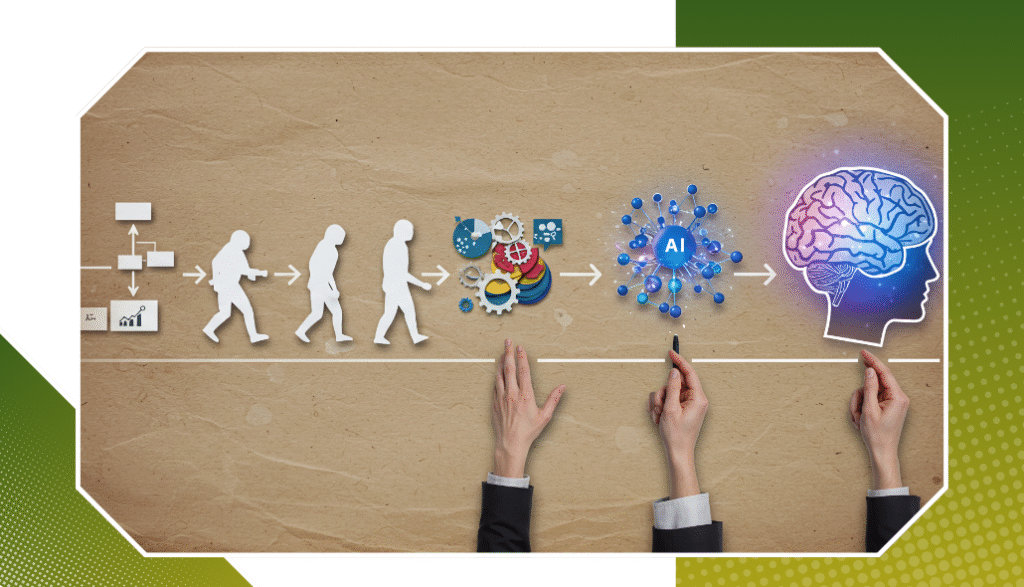These dynamic summaries often appear above traditional features, changing how users interact with search. That leaves content creators and SEO experts wondering: Are AI Knowledge Panels and Rich Results becoming obsolete, or will they continue to play a role in this changing landscape? In this blog, we will explore how these elements differ, where AI Overviews are taking the lead and what it means for your SEO strategy.
Where AI Overviews Compete with Knowledge Panels and Rich Results
One of the biggest changes AI overviews bring is their ability to address complex, problem-solving queries. According to Semrush, as of February-March 2025, AI overviews now show up to 13% of queries, up from roughly 6% in January. In contrast, Google’s reports show that around 75% of how-to explainer and comparison-based searches now show AI Overviews. In those cases, Knowledge Panels and rich features may be pushed aside or omitted entirely, especially when an AI Overview appears.
When a featured snippet is present, that page has over 60% greater chance of being cited in the AI Overview. However, these snippets are often folded into the broader AI response. However, AI Knowledge Panels continue to dominate for clear entity-based queries involving a famous person or brand. They offer fact-based, static information from trusted sources like Wikipedia or official databases that users trust. They often appear alongside or above any AI content.
Will AI Overviews Replace Them or Coexist?
Arguments for AI Overviews Taking Over
- Better Positioning on the Page: AI overviews take up a large portion of the screen, appearing at the top of the results, pushing organic results further down. This reduces visibility for traditional content.
- Rapid Adoption: In less than a year, AI Overviews now show up in nearly 30% of all searches and 3 out of 4 problem-solving queries. This speed of growth hints that Google sees them as a core part of future search.
- Lower Click Rates: People are clicking less but staying longer on the results page. One study found that click-through rates have dropped by 34.5% for pages that were previously ranked first but are now displaced by AI overviews, especially for informational queries.
- Google’s Long-Term Vision: With “Search in AI Mode” becoming the default for many users, Google seems to be steering toward an interface where users get answers from summaries first and then links only if they want more detailed information. This signals a shift in how search will work.
Arguments for Coexistence
- Different Use Cases: Knowledge Panels still serve high-intent searches like dates, definitions, and historical events. Rich Results support local intent, product shopping, and navigation, like finding a business or choosing a flight.
- Google Limits AI Overviews in Certain Searches: Structured features still serve high‑intent queries. In transactional, local, or product-related searches (like buying a product, looking for a restaurant), AI Overviews appear in fewer than 10% of the time. Instead, Google relies on product cards, local listings, and rich ads.
- Backed by the Knowledge Graph: AI Overviews don’t exist in isolation. They often draw from Google’s Knowledge Graph, FAQs, and schema-rich pages, and structured data still plays a key role. This keeps Knowledge Panels relevant, especially for high-trust content.
- Structured Features Still Matter: AI Overviews show up in just 5% of transactional searches, making traditional search features essential for purchases, bookings, and service-related queries.
Implications for SEO and Content Creators
AI Overviews are reshaping how content creators and SEO professionals think about visibility and traffic. While being cited in an AI Overview can boost brand awareness, it doesn’t always lead to clicks. Traditional metrics like ranking are no longer reliable indicators of performance. Now, it’s about whether your content is quoted in these AI-generated summaries. Structured content, E-E-A-T signals (expertise, experience, authoritativeness, and trustworthiness), and snippet-worthy formatting play a larger role in visibility. Impression tracking and AI citation monitoring are emerging as key success metrics. For creators, this shift demands a balance between being discoverable and being the answer, positioning your content to be selected, summarised, and trusted by AI systems.
Strategic Recommendations for Content Creators & Businesses
To compete in today’s search landscape, content creators and businesses must go beyond keywords. Focus on the following:
- Use Schema Markup: Add FAQ, Article, and HowTo tags to help Google understand your content.
- Answer Follow-up Questions: Add subtopics within your content that users might search next.
- Use Clear Formatting: Stick to bullet points, bold headings, and short paragraphs.
- Show Credibility: Include author bios, trusted sources, and reputable backlinks.
- Expand Your Reach: Share content on forums, YouTube, and social media where search engines find fresh references.
Staying competitive means updating your approach. It’s no longer about ranking first, it’s about being the best source of information. These steps improve your chances of being mentioned and seen, even if direct traffic drops.
Preparing for the Future of Search
Search is moving toward fast answers and conversational queries. Your content should reflect that change while still being helpful and reliable.
Here’s how to prepare:
- Stick with Structured Data: This still powers product displays, local listings, and Knowledge Panels.
- Write Like You’re Speaking to a Real Person: Break down complex ideas. Use headings, questions, and direct answers.
- Update Regularly: Make sure your stats, facts, and citations are current.
- Follow Search Trends: Cover topics fully and anticipate related questions. Complete coverage increases your chance of being cited.
This mix of clarity, structure, and authority keeps you relevant even as the search experience evolves.
Conclusion
Search results today look different, and success means more than just a top ranking. Being quoted in summaries is the new goal. Clear, well-structured, and trusted content is more likely to be seen, even if users don’t always click through. If you are serious about staying visible in Google’s evolving search landscape, don’t wait. Optimise for both structured features and AI Overviews. Ready to audit your existing content, identify key questions your audience asks, or build AI‑friendly formatting of AI Knowledge Panels? Contact us at Rankingeek Marketing Agency and let’s plan your tailored SEO strategy for the AI‑powered SERPs ahead.





